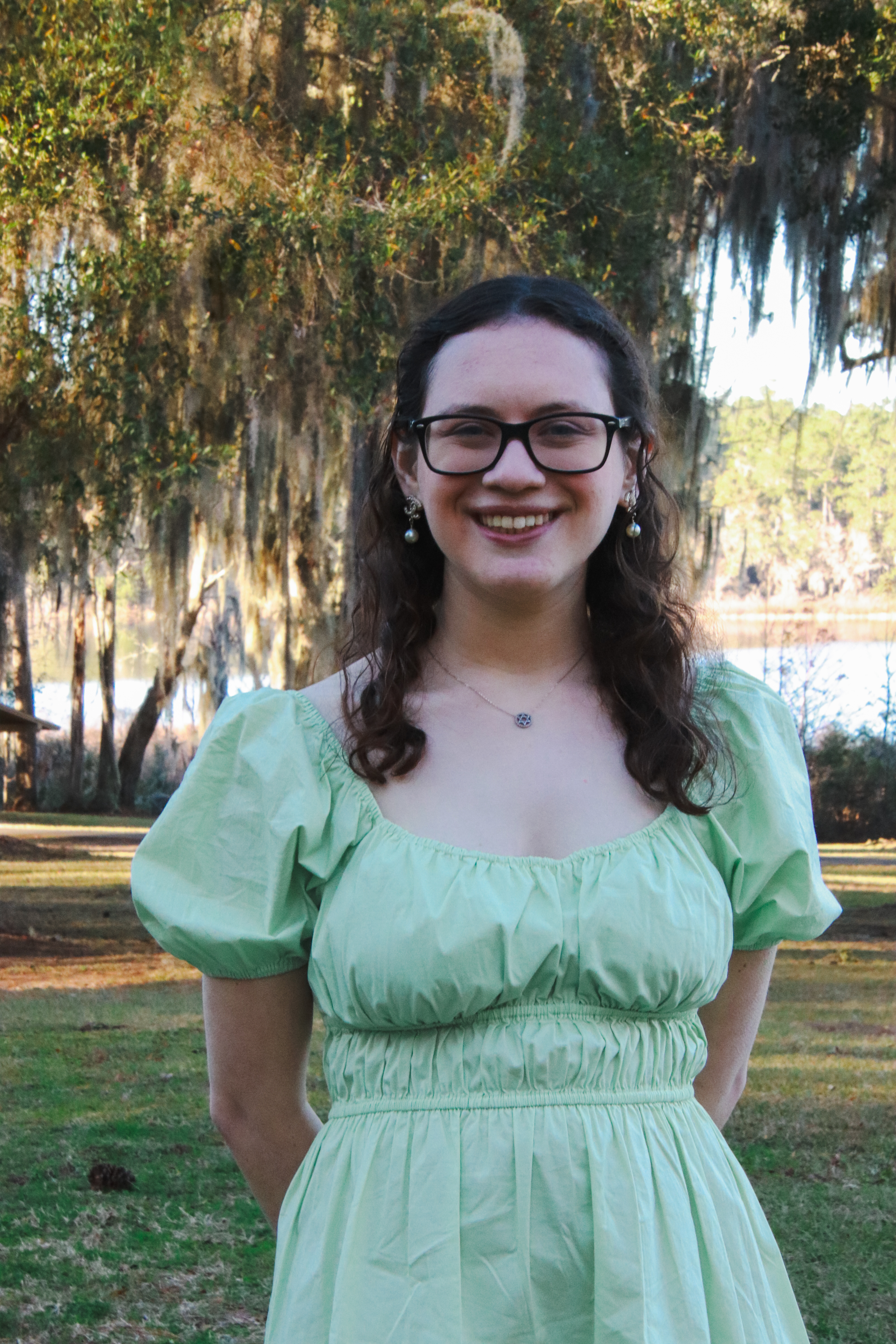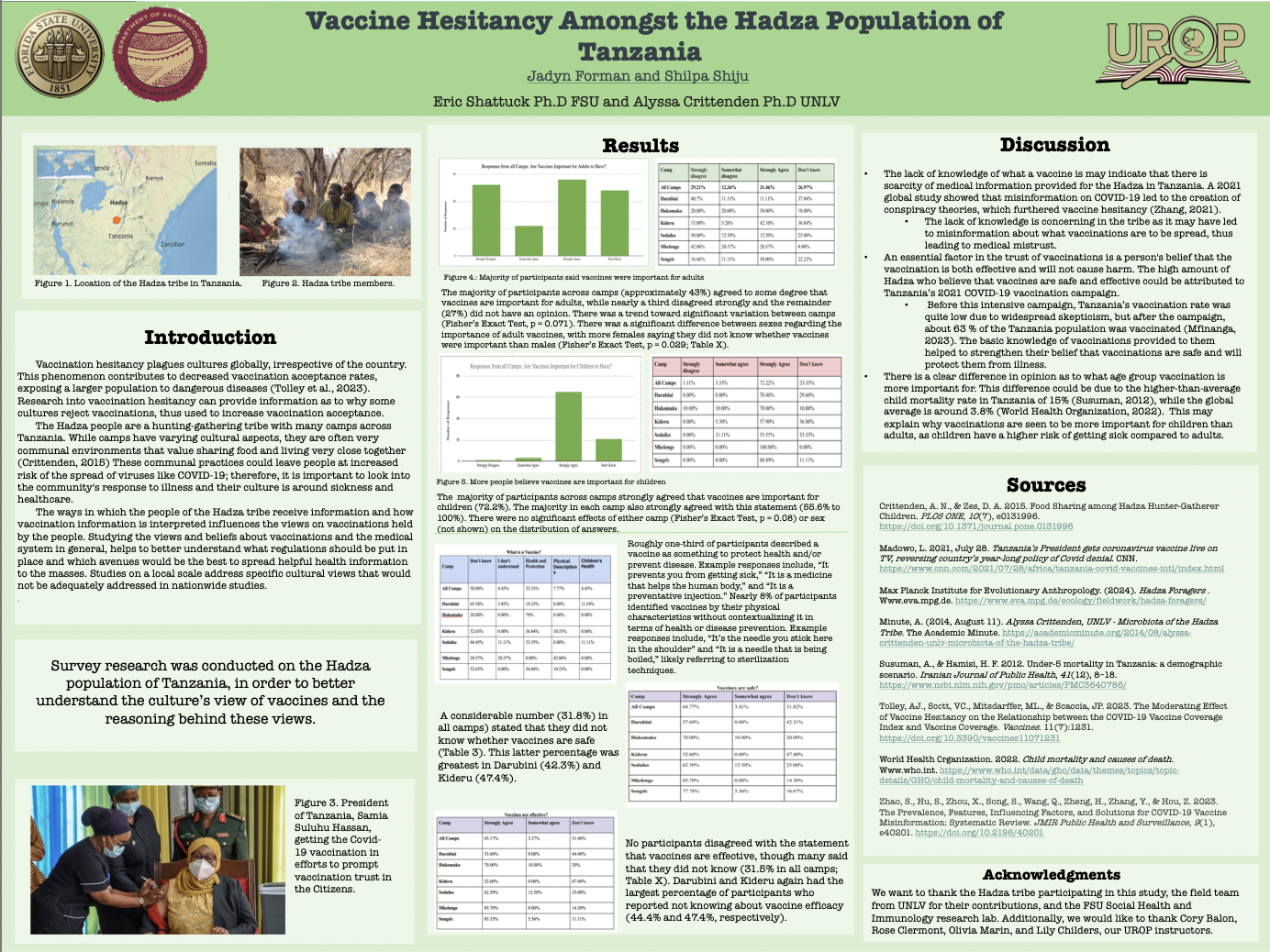Research Symposium
24th annual Undergraduate Research Symposium, April 3, 2024
Jadyn Forman Poster Session 2: 10:45 am - 11:45 am/134

BIO
Jadyn Forman is in her second year at FSU. In addition to being an Anthropology major, she is a pre-medical student aspiring to be a surgeon one day. Outside her classes, she is an Exploratory Peer Advising Leader with FSU Advising First and Director of Academic Enrichment at Alpha Gamma Delta. She hopes to conduct more medical anthropology research in conjunction with continuing her work on "Vaccine Hesitancy Amongst the Hadza Population of Tanzania" beyond her time in UROP.
Vaccine Hesitancy Amongst the Hadza Population of Tanzania
Authors: Jadyn Forman, Dr. Eric ShattuckStudent Major: Anthropology
Mentor: Dr. Eric Shattuck
Mentor's Department: Anthropology Mentor's College: College of Arts and Science Co-Presenters: Shilpa Shiju
Abstract
Research into vaccination hesitancy can provide valuable information as to why some cultures reject vaccinations, which can then be used to increase vaccination acceptance. This study focuses on the hunter-gatherer Hadza tribe in Tanzania, who have a heavy belief in traditional medicine. This is in part due to limited access to healthcare and vaccinations because of geographical conflicts. The study will provide culturally relevant information on the tribe's views on vaccination, which cannot be gained in nationwide studies.
This study surveyed 91 participants across 6 different Hadza camps. The participants were asked various questions relating to medical information and vaccine access/information in their communities.
The majority of participants in the survey answered that they strongly believe vaccines are safe (64.8%) and effective (65.2%). There were no significant differences in these beliefs across camps. When asked if vaccines were important for children to have, 72.2% of participants strongly agreed that they were, 23.33% didn’t know, and only 1.1% strongly disagreed. This is in contrast to how 31.5% of participants strongly agreed and 29.2% strongly disagreed with the statement that vaccines are important for adults to have, though they did have a somewhat similar amount of people answering that they didn’t know, with 26.97%.
The Hadza people obtain vaccine information from multiple avenues which include medical staff, tribal leaders, and traditional healers. These avenues provide the tribe with a strong sense of security during the vacations they receive.
Keywords: Anthropology, Vaccine, Tanzania, Hadza


